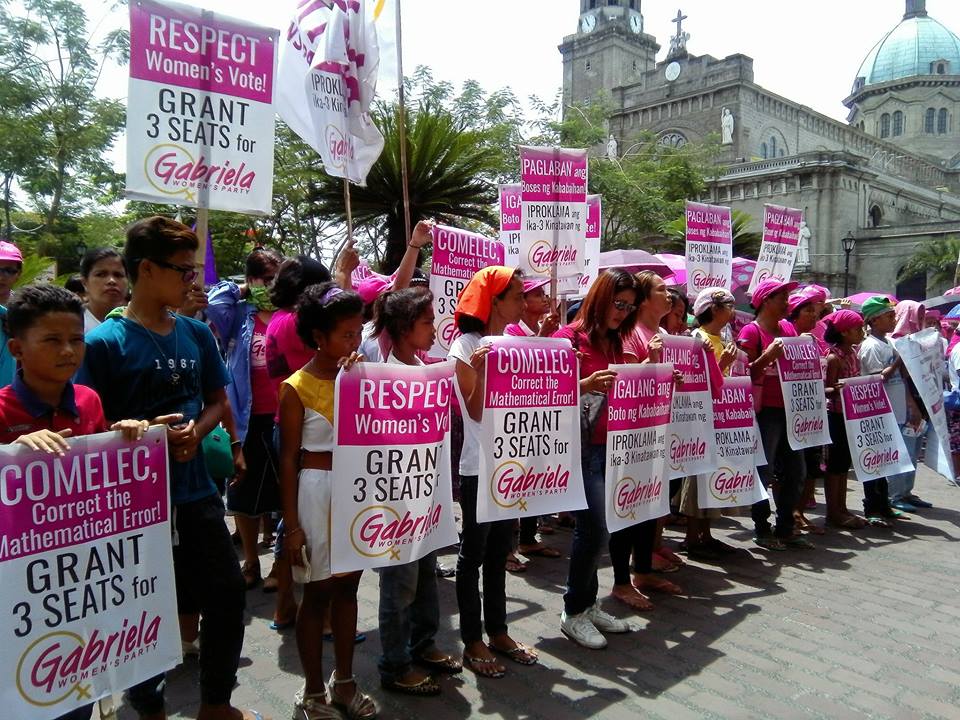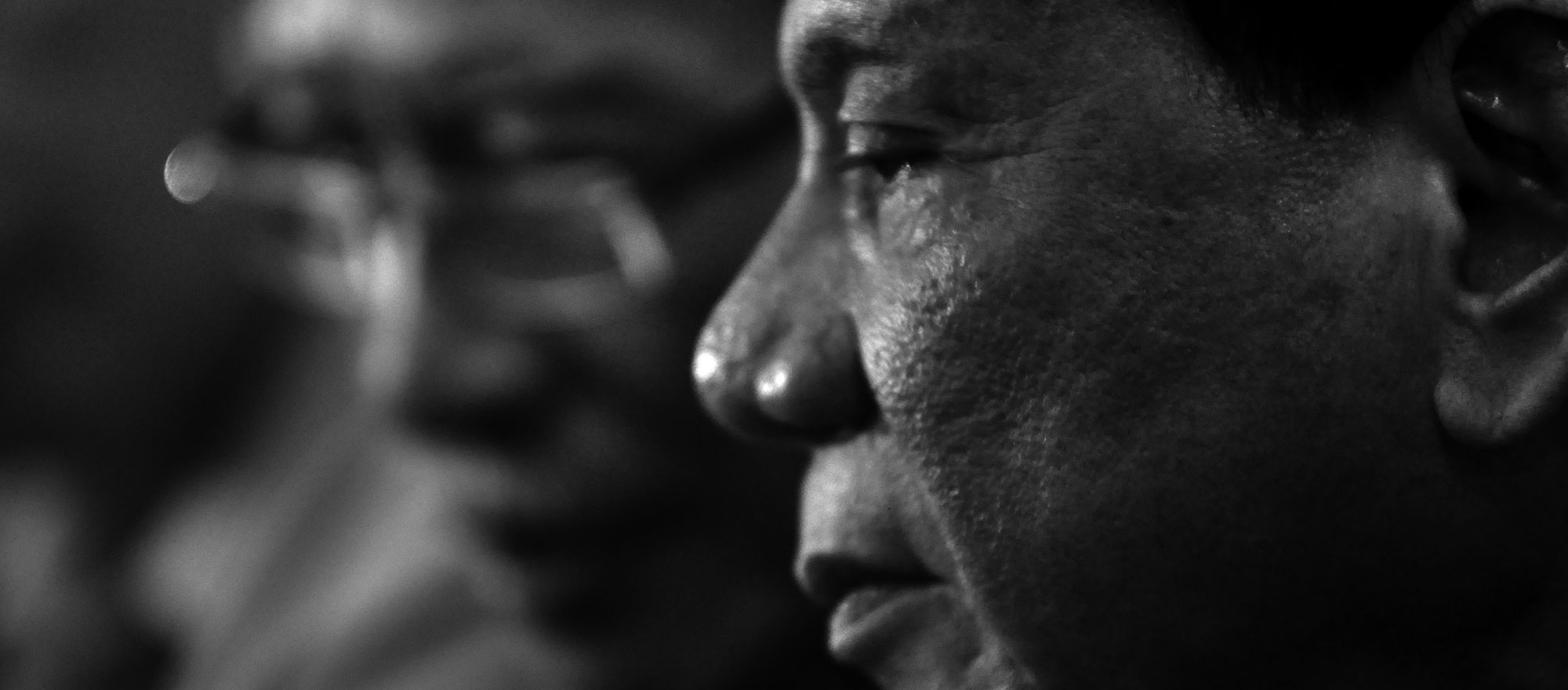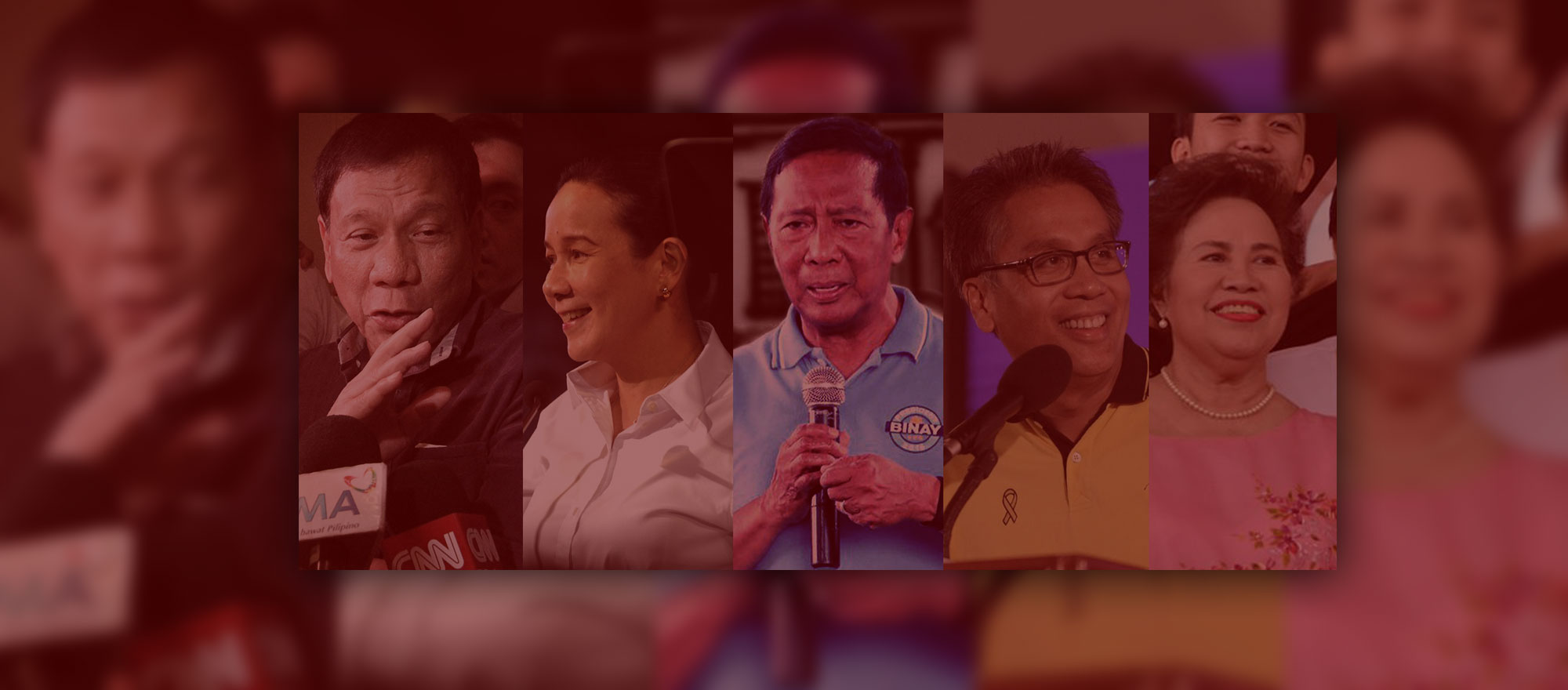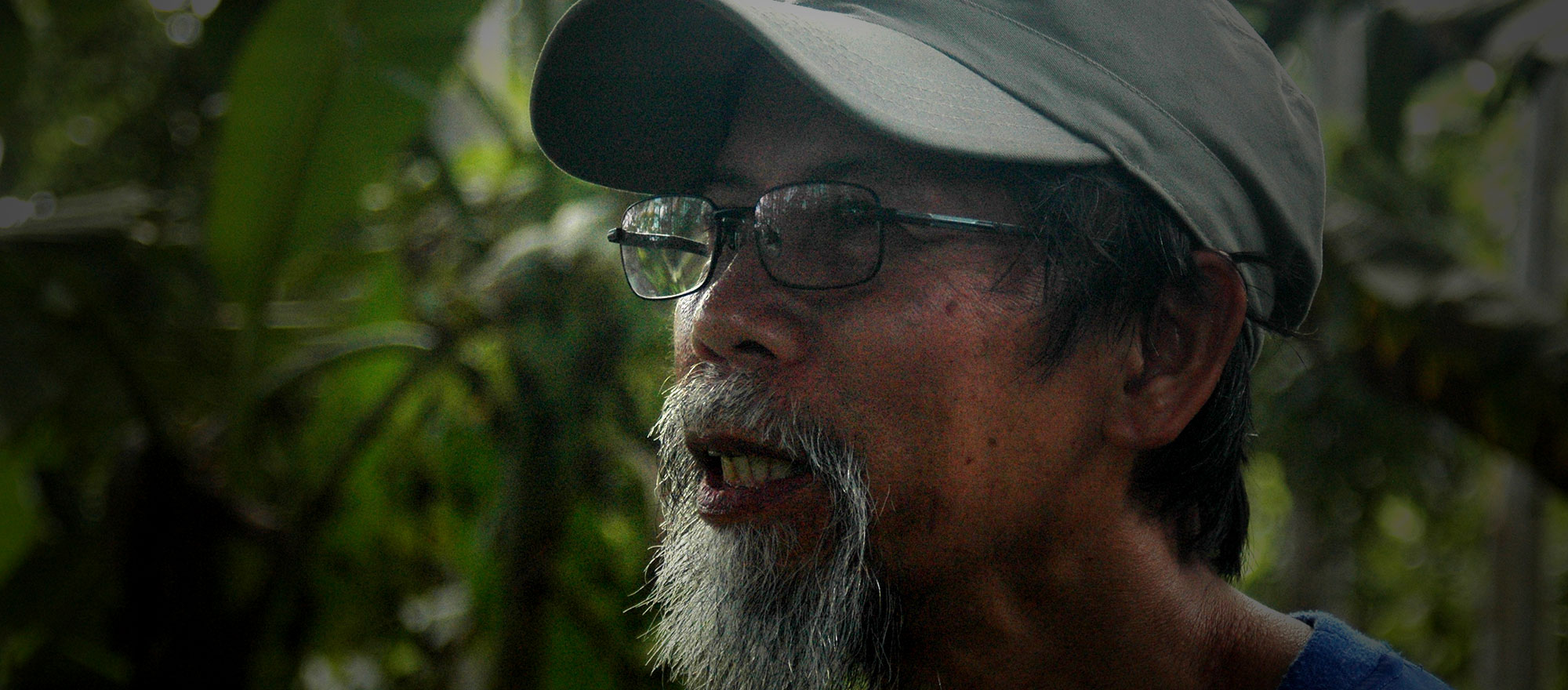Misunderstanding Duterte and the Philippine Left
Once again, Jacobin enables a commentator’s skewed, dishonest discourse on the Philippine Left.


There’s this fascist politician who’s a formidable candidate for the presidency in the Philippines and he’s being supported by the authoritarian Philippine Left. That, in sum, is the general impression that “Rodrigo Duterte’s One-Man Revolution,” an essay published last February 19 in Jacobinmag.com authored by one CJ Chanco, leaves in the minds of the online publication’s international readers.
The impression violates facts and mangles the truth. And not only because the underground Communist Party of the Philippines (CPP) or any of the organizations associated with it, simply do not support the presidential candidacy of Davao City Mayor Rodrigo Duterte. But because, more importantly, Chanco plainly cannot make heads or tails of Duterte as a politician and presidential candidate, of the Philippine Left, and of the relationship between the two – something the verbosity of his article cannot cover up.
On the one hand, Chanco says that Duterte has “a way of sounding good to every possible audience,” has a “schizophrenic platform,” and has “years of mastery of the delicate balancing act required in the management of the testy politics characteristic of the nation’s war-torn southern frontier.” On the other hand, his description of the “vision” of Duterte’s “revolution” is more coherent and monolithic: “capitalism with Filipino characteristics, in other words, where a neoliberal economy and political authoritarianism combine with the utmost efficiency.”
In reality, Duterte’s stands on various issues do not form a coherent vision and are often contradictory. This February, he was praised by progressive peasant organization Kilusang Magbubukid ng Pilipinas for promising land reform and government support for farmers in one forum. The same group, however, immediately criticized him after he expressed agreement with 100 percent foreign ownership of lands in another forum just 12 hours after making his pro-farmer statements. He was also praised by progressive labor center Kilusang Mayo Uno (KMU) after he declared opposition to contractualization. The same group, however, criticized him for calling for a stop to unionism, with Duterte even threatening to kill KMU unionists if they refuse to heed his call.
As a politician, he is congenial to both the Philippine Left and Ferdinand Marcos, the former dictator and the Left’s nemesis. Inday Espina-Varona, an astute observer of Philippine politics, notes that “The strongman accused of encouraging death squads in his city is also a staunch defender of human rights of activists.”
Duterte is therefore not a one-man revolutionary, either of the Left or of the Right. His character is immediately recognizable to those familiar with dominant politics in the Philippines: He is a traditional elite politician who is exceptionally pragmatic in his dealings with various forces in Philippine society. He is firm only on a single issue: peace and order. All his contradictory stands on different issues make sense only when seen from this lens.
Chanco makes the Davao politician appear bigger than he actually is. He makes it seem that Duterte’s appeal cuts across classes and claims that Duterte is “overwhelmingly popular,” even expressing fears about “the willingness of the majority to fall for his message.” He says that Davao City is like Singapore “in the minds of many,” that Duterte is compared with Lee Kuan Yew or Ferdinand Marcos, and that Duterte “has become something of a model for other mayors across the country.” He says that Duterte is similar to “a phenomenon echoed elsewhere, from the rise of far-right parties in Europe to Donald Trump in the United States.”
The reality is much more modest. While he has a solid, even fanatical, base of support, Duterte topped surveys only once, in early December, a small dent in the survey-engrossed dominant politics of the Philippines. That may be the result of his supporters’ clamor for him to run, which reached a crescendo on the deadline for the filing of candidacies and continued immediately after. His campaign is particularly strong on social media mileage – #du30 supporters are among the most active online, topping polls and flooding comment boxes and newsfeeds, rivaled only by the well-established machinery of the administration camp.
And yet, Filipinos have not been migrating to find work in Davao City in the same way that many Filipinos have migrated to find work in Singapore. Comparison with Lee Kuan Yew or Marcos may be part of Duterte’s publicity drive, but is not the popular view. Some people may be holding up Duterte as a model for mayors in the country, but he is not yet a widely-recognized example, and Chanco would be hard pressed to pinpoint a city mayor in the Philippines who is trying to emulate the Davao City mayor.
Espina-Varona pinpoints the Achilles’ heel of Duterte’s presidential run: “Duterte’s main problem remains the lack of financial big guns.” Which explains his lack of a senatorial slate and is a clear sign of his incapacity to mount a strong nationwide campaign. And that, in Philippine politics, does not augur well for a presidential candidate. Donald Trump-style rhetoric aside, one thing is clear: Duterte does not have Trump’s wealth, or that of Trump’s counterparts in the Philippines.
Chanco mentions the claim made by Prof. Jose Maria Sison, founding chairperson of the CPP whom Chanco accuses of still being the “CPP chairman,” about the Left’s “long history of engagement with the Davao mayor.” But he makes it appear that the Left wants to move closer to Duterte the presidential candidate, even to the point of abandoning the candidate whom it has endorsed earlier. He says the CPP’s “front organizations” want to “benefit” from Duterte’s “popularity,” seeing “in him a hope for a viable peace process.”
As a Davao politician, Duterte has indeed for the longest time been a good friend of the Left. As Sison himself states, “The local revolutionary forces in Davao City consider Mayor Duterte as someone they can negotiate with and make reasonable agreements with.” Duterte, pragmatic politician that he is, has maintained good relations with the Left, whose organized strength is most formidable in Davao City and the entire Mindanao island in general.
The truth is that the Makabayang Koalisyon ng Mamamayan or Makabayan, the progressive electoral alliance which Chanco accuses of being a CPP front, openly supports another presidential candidate, Senator Grace Poe, whom Chanco describes as “perhaps the sanest bet.” Sison’s statements favoring Duterte were made in recognition of his long-standing good relations with the Left, and do not mean a shift of support to him. In the first place, the CPP, as Sison states repeatedly, does not recognize the validity of the bourgeois elections and does not participate in the latter.
Contrary to facts, however, Chanco insists that the Left supports Duterte because “Duterte’s authoritarianism mirrors that of the CPP” – surely a candidate for the award for argumentative leap of the year. His lengthy analysis of Duterte is merely a wick for his bombshell of accusations against the Philippine Left – lazy accusations which are supported neither by facts nor arguments.
First off, while the Philippine Left is open to tactical alliances with most politicians, pointedly excluding the Marcos and Arroyo cliques, it takes particular pride in alliances with politicians who take nationalist stands on various issues and have the courage to speak out on these: senators Lorenzo M. Tañada, Jose W. Diokno, Teofisto Guingona, among others. If an alliance with Duterte is enough for Chanco to say that the Philippine Left shares his “authoritarianism,” then the Left’s alliances with the most nationalist and courageous politicians, which are its most visible alliances, merit deeper and greater consideration.
Chanco tellingly claims that the “authoritarianism” of the CPP “has become something of the reverse image of the state violence it ritually condemns” and adds that the CPP-led people’s war “has claimed thousands of lives and sapped energy, time, and resources from alternative means of political mobilization.”
This is most foul. Equating the violence of an armed Communist movement with that of the US imperialist-backed state of big comprador capitalists and landlords is definitely not progressive, let alone Marxist. It ignores the fundamental exploitation and oppression being maintained, even made worse, by that state as well as the people’s sovereign right to take up arms to defend themselves and bring down their oppressors. Chanco demonizes the armed struggle which, for all its weaknesses and even faults, remains morally superior to the violence of the reactionary state.
In the country’s history, the armed struggle did not get in the way of “alternative means of political mobilization” but has served as the main means of political mobilization that enabled other forms of political mobilization. It has become the chief means by which the peasant masses, and the toiling masses in general – who comprise the majority of Philippine society – have fought back and struggled for national and social emancipation. The 30th anniversary of the Edsa People Power uprising should remind us that the armed struggle waged by the New People’s Army, together with the underground organizations in the cities, both led by the CPP, served as the backbone of the struggle against the US-backed Marcos fascist dictatorship.
Chanco then rattles off the CPP’s supposed “defeats in the armed struggle,” losses in the “battle for hegemony,” weaknesses in “raising political consciousness or putting an inspiring alternative to the status quo,” “presidential campaign interventions” that “consist of slandering candidates in largely personal terms, often at the expense of a deeper, more structural analysis” – to pave the way for his recommendations.
The CPP would be the last to say that it does not have weaknesses or defeats. As a Maoist party, it subscribes to Mao Zedong’s belief that “conscientious practice of self-criticism” is a “hallmark distinguishing our Party from all other political parties.” It presents and addresses weaknesses and defeats in its anniversary statements and in numerous memoranda on various issues. Chanco’s description of the CPP’s weaknesses and defeats, however, are either too impressionistic when general (“raising political consciousness or putting an inspiring alternative to the status quo”) or too petty when particular (“slandering candidates in personal terms”).
The more important issue, however, is whether the Philippine Left’s weaknesses and defeats take precedence over its strengths and advances. Chanco himself admits that the CPP leads “the longest-running communist insurgency in Asia” and “remains the largest organized force on the Left” in the Philippines. And this, it must be emphasized, remains despite various forms of neoliberal attacks inflicted on its organized force and successive counter-insurgency programs.
To cite only examples pertinent to Chanco’s topic, the Philippine Left has been assiduously courted by all political groups running in the 2016 elections, whether in the form of statements favoring peace talks with the CPP or in actual initiatives for meetings. Duterte himself made various pro-worker, pro-farmer and pro-people statements in an effort to court the Left’s support.
Chanco does not see the entire picture when he says that the electoral “discussion” in the Philippines “has shifted so far to the right.” Opinion poll after opinion poll has shown that the electorate’s main concerns in the upcoming elections are a combination of higher wages, lower prices, more jobs, and less corruption – issues that directly mirror campaigns of the Left, and not the Right. And presidentiables are taking notice; as of this writing, for example, three out five of them have vowed to fight contractualization if they become president.
Even if we use Chanco’s standard of a movement’s weaknesses and defeats, therefore, there is no basis to his startling conclusion that the CPP “is a barrier to a new socialist politics in the Philippines.” Rather, it continues to be the only beacon of socialist politics in the Philippines.
His tone then shifts to a starry-eyed, wonderfully lofty ambition for “a new vision for the Philippine left” that includes “a new set of narratives for a democratic, pluralist alternative, in the best tradition of internationalism, principled political engagement, and solidarity.”
The recommendation sounds palatable, but what is Chanco really talking about, in concrete terms? Is he talking about the significant revolutions in history – the Russian, Chinese, Vietnamese and even the Cuban? Or is he merely mouthing vague generalizations with no clear historical referents? The phrases that Chanco uses have often been deployed precisely to attack the said revolutions waged in the name of Marx, Lenin and even Mao.
The histories of these revolutions have also been histories of successes and defeats, advances and retreats, and twists and turns. But also, and very importantly, of continued adherence to, and not abandonment of the ideas and ideals of the great Communist revolutionaries.
After making the statement that the CPP is a barrier to socialist politics in the Philippines, Chanco backtracks by saying that the “way forward” could only rest on “the CPP and its supporters” themselves. He calls for a “critical assessment” of the alleged “impasse” of the Philippine Left. In his Facebook posts explaining the essay, he claims that he only wants a “debate” on the topic.
Is publishing an attack piece in Jacobinmag.com the best way to seek such a debate or to call for a critical assessment? In an online publication that has published a similar attack piece months ago and, despite its claim to openness and democracy, refused to publish a critical rejoinder? Whatever Chanco’s intention, the objective effect is the same: contributing to the Philippine Left’s continuing demonization by a small band of intellectuals who fancy themselves to be progressive but in reality advance the interests of US imperialism and the ruling classes in the Philippines.
When Sison saw that the old CPP of 1930 has become “a barrier to a new socialist politics” in the Philippines, he didn’t write a critique of the old party in an international publication only to ask the same party to make an assessment and rectify its errors. He bolted out of the old party and built a new party in 1968 – with a people’s army and a united front alliance of progressive organizations to boot. Sison was criticizing the old party because he knew what needed to be done and had the courage to do it; Chanco has only misplaced criticisms and lacks the commitment to progressive politics and courage to build a “new socialist politics” in the country, whatever Chanco means by that phrase.
Where is Chanco coming from? Definitely not from Marxism. His approach is far from materialist in violating facts and the truth; he cannot speak truth from facts. His approach is undialectical in failing to identify and demonstrate relations as they develop in the historical process. And in confusing the Left with its enemies, he does not hold fast to class analysis, let alone to a class standpoint in viewing reality.
His essay abounds with academic left jargon: he says the Philippines has “an onerous liberal democratic system” which has a “rentier state” and is ruled by “bureaucrat-capitalism”; he does not problematize the overlaps and clashes in these concepts. He echoes Slovenian philosopher Slavoj Zizek’s plays with “capitalism with Chinese characteristics” in describing the alleged vision of Duterte for the Philippines. He situates his essay within progressive writings on the rise of Donald Trump and fascist parties.
Chanco is too enamored with faddish theories and topics of pseudo-progressive intellectuals abroad to the detriment of dialectics and materialism. The result: he fails to clearly understand and analyze his topics – Duterte, the Philippine Left, and, ultimately, Philippine politics.
28 February 2016




